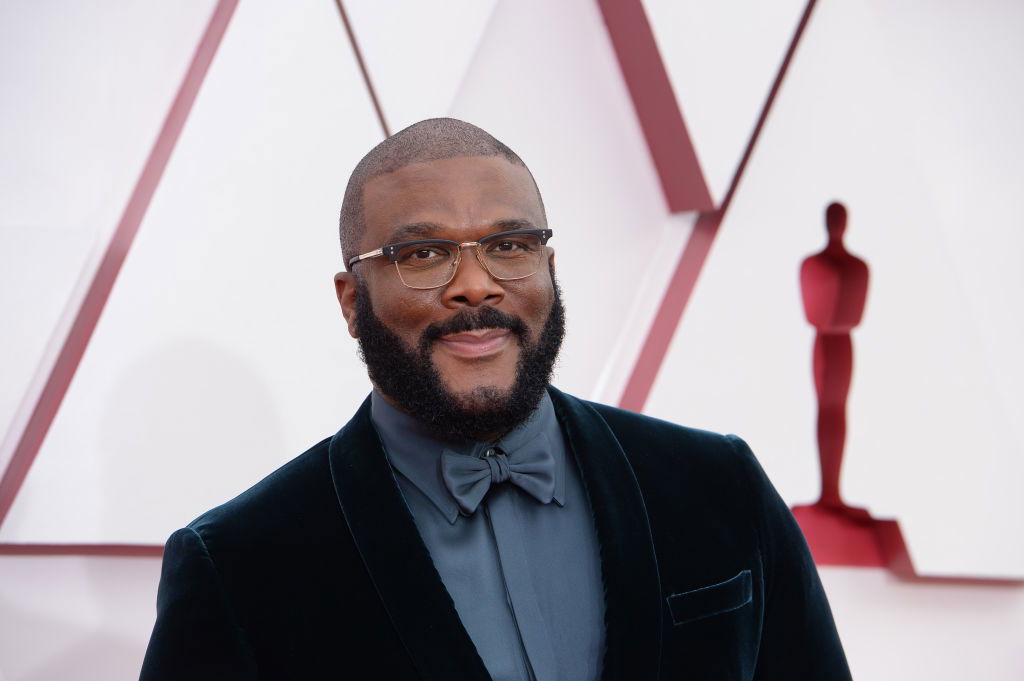
February 24, 2024
Tyler Perry Halts $800M Studio Expansion Due To Advanced Artificial Intelligence, Admits ‘Jobs Are Going To Be Lost’
Tyler Perry is halting plans for an $800 million studio expansion due to the rapid developments he's witnessed with artificial intelligence.
Tyler Perry is halting plans for an $800 million studio expansion due to rapid developments he’s witnessing with artificial intelligence.
After witnessing the power of OpenAI’s new text-to-video model Sora, the heavyweight filmmaker decided to hold off on expanding his massive 330-acre Atlanta studio, which would have added 12 new soundstages. According to The Hollywood Reporter, Perry tested the new AI product out following its Feb. 15 debut and believes the advanced technology will help his productions avoid traveling to locations or building sets.
“Being told that it can do all of these things is one thing, but actually seeing the capabilities, it was mind-blowing,” Perry said.
Serving on both ends of the spectrum helps Perry see the benefits and dangers Sora presents to the entertainment industry. As a business owner, the Madea Family Reunion creator recognizes the potential within these tech advancements. However, as an employer, actor, and filmmaker, Perry is also sounding the alarm about potential threats.
“There’s got to be some sort of regulations in order to protect us. If not, I just don’t see how we survive,” he said.
Perry admits that plans to expand his production studio are on hold “indefinitely” due to the power of the new Sora tool. The billionaire media mogul has been keeping his eyes on the emerging OpenAI wave and expected changes to the industry, but not to the extent he recently witnessed.
“I had gotten word over the last year or so that this was coming, but I had no idea until I saw recently the demonstrations of what it’s able to do. It’s shocking to me,” Perry shared.
Sora is a newly introduced product of OpenAI, a U.S.-based artificial intelligence research organization. It serves as an AI model that allows users to create realistic and imaginative scenes by simply typing in instructions.
Launched Feb. 15, Perry was given an early test run that left him both taken aback and in awe of the possibilities.
“If I wanted to be in the snow in Colorado, it’s text. If I wanted to write a scene on the moon, it’s text, and this AI can generate it like nothing,” he described, adding how the new tech would help cut production costs.
“I don’t have to put a set on my lot. I can sit in an office and do this with a computer, which is shocking to me,” he said.
Perry sees how much of a “game changer” OpenAI will be in the entertainment industry — and admits to the job losses that could occur as a result.
“I am very, very concerned that in the near future, a lot of jobs are going to be lost,” he said. “I really, really feel that very strongly.”
In September, Hollywood writers and actors ended one of their longest strikes in history after reaching a tentative deal that included protections against the growing AI wave. Under the new terms, studios “cannot use AI to write scripts or to edit scripts that have already been written by a writer,” comedian Adam Conover told The Guardian. The contract also prevents studios from using AI-generated content as “source material” that screenwriters could be tasked with adapting for reduced compensation and diminished credit compared to a wholly original script.
However, considering Perry’s latest revelations and drawback on studio expansion, it could serve as a foreshadowing of what’s to come across the entire industry.
RELATED CONTENT: Tyler Perry’s Business Model And The Future Of Black Cinema